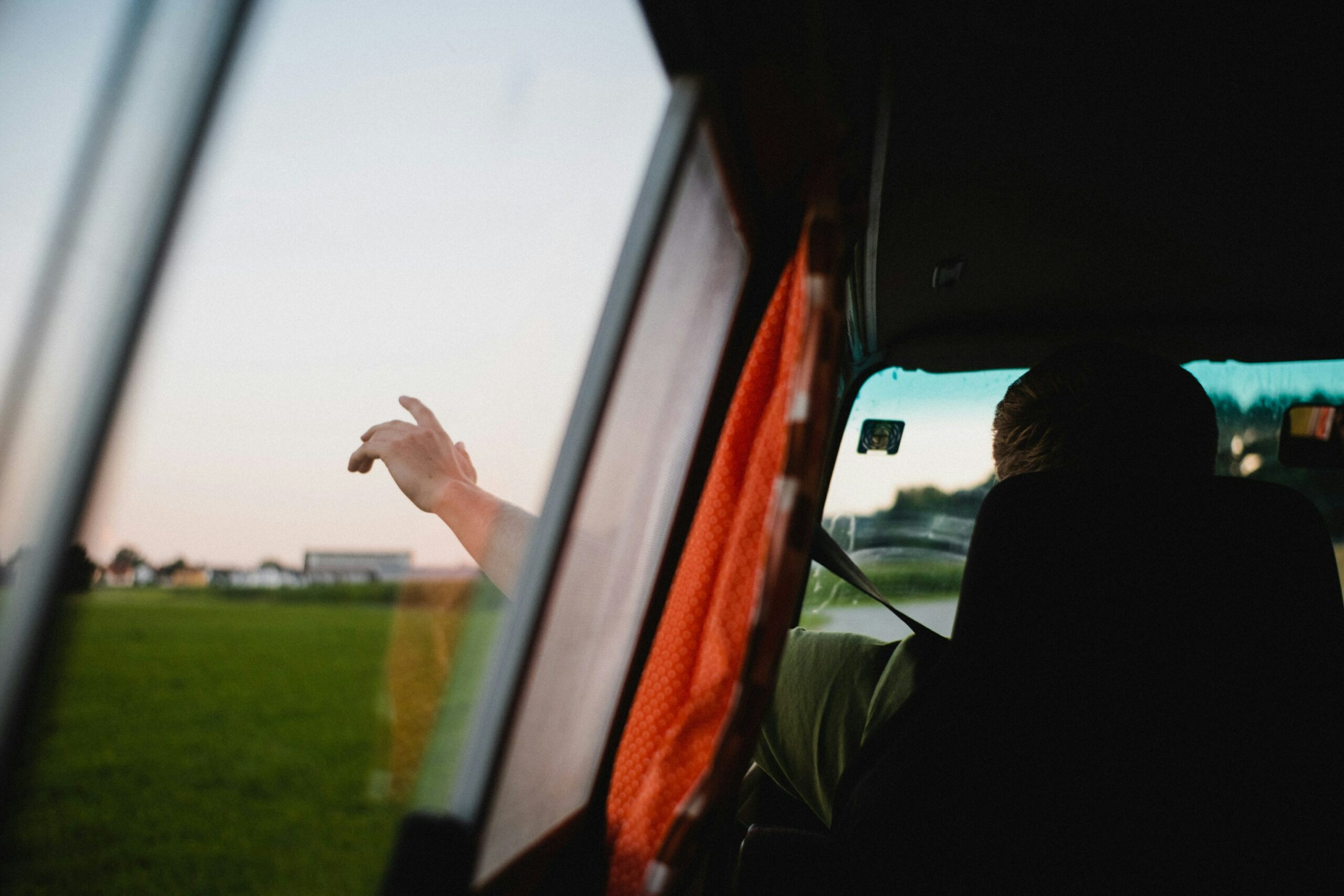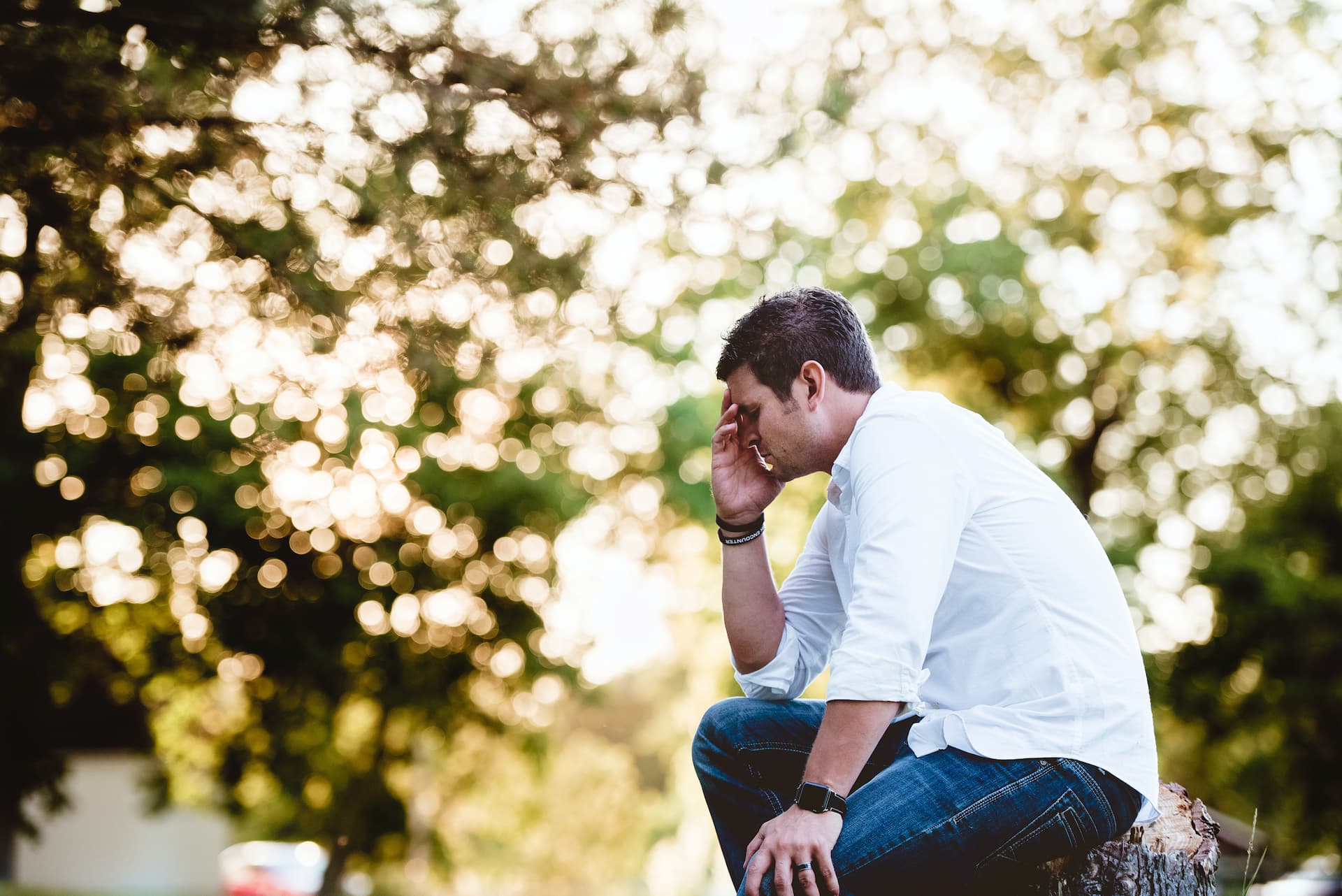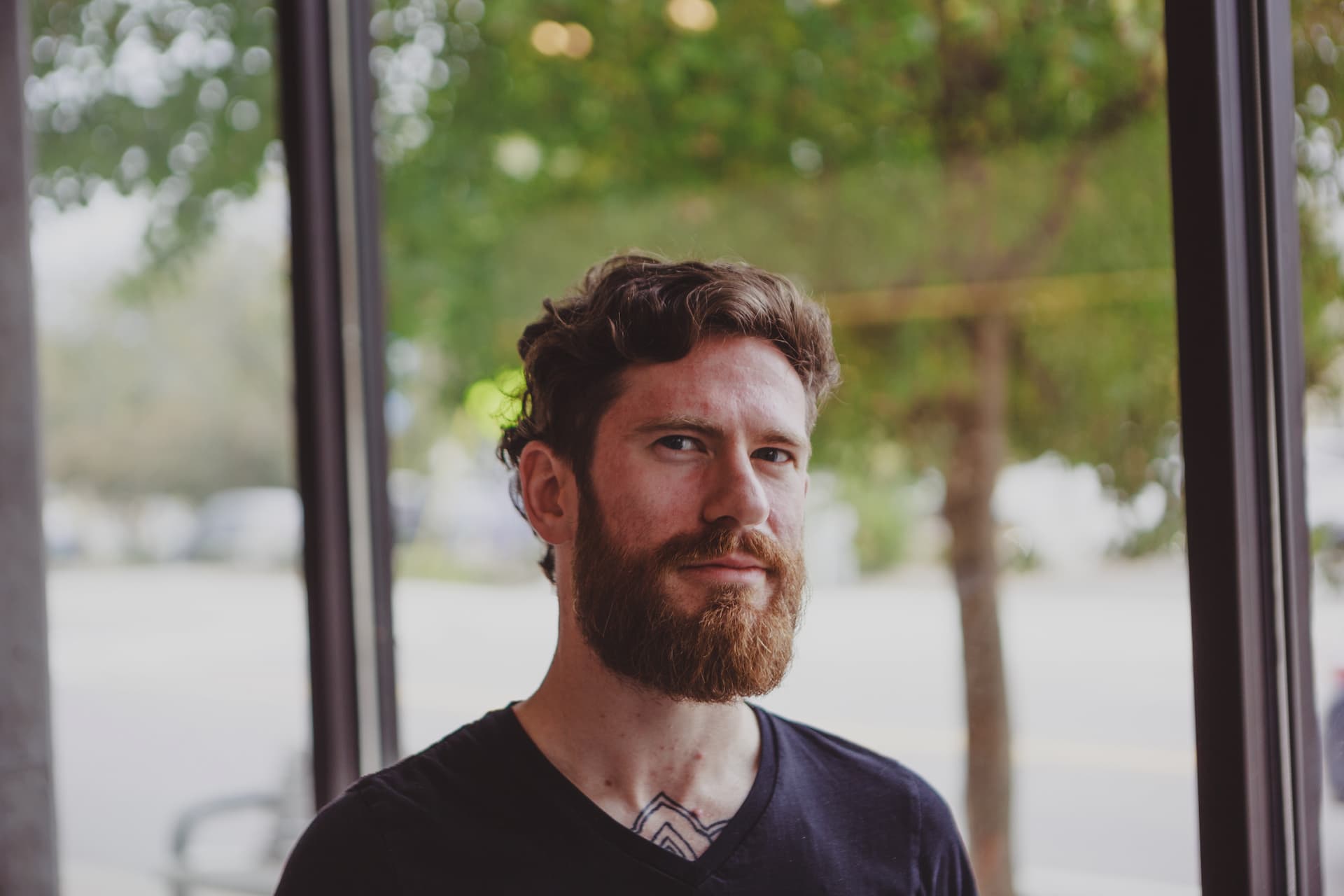There is a lot of hard work in it. I shouldn’t downplay that. It makes a difference in the outcome. You have to do a lot of listening, a lot of self-reflection, and self-analysis. It’s hard, but there’s a sense of acceptance. You almost become like a third-party observer of your own life. There’s a quote by Oscar Wilde about that: “If you become the observer of your own life, it takes the suffering out of it a bit.”
A former patient of the addictions unit, now 3 years sober shares their experience seeking help at Nightingale Hospital.
For Addiction Awareness Week, we’re sharing an inspiring story from a former patient. We hope this story acts as a reminder that you’re never alone and that there is always a path to recovery.
So, could you tell us what treatment you did at Nightingale?
I did a 7-day detox at Nightingale. It was a short, sharp shock, precipitated by a crisis brought on by heavy drinking. About a week prior, I had been drinking excessively for five to seven days. This led to a crisis that involved a combination of denial and thinking, ‘I don’t really have a problem; I can stop whenever I like.’
When I abruptly stopped drinking, which obviously is a stupid thing to do and medically unwise, I began experiencing severe withdrawal symptoms, including auditory hallucinations, and at one point, visual ones as well. This crisis prompted me to seek help, so in a panic, I took a cab to see my doctor at the time.
The doctor sent me to Nightingale, where I was quickly admitted and given a room. I saw a doctor at the hospital later that evening, and that’s how my treatment began. The crisis forced me to take action, although I believe I would have needed help sooner or later. It’s difficult to know for sure how things would have played out otherwise.
What did life look like for you before Nightingale?
It was fine, up to a point. I don’t know whether it’s obvious, but you have to take responsibility. British culture, especially student culture, can involve heavy drinking, particularly in sports and social settings. I never really grew out of that. Looking back with more clarity now, I think the real problem began about 12 months before I started to notice it, following the end of a relationship that affected me worse than I initially thought. The drinking overlapped with depression, anxiety, and stress—issues I’ve always struggled with. It all came together as a kind of lethal cocktail, really.
There were a lot of negative things happening all at the same time, which I didn’t handle well. It became cyclical: I would drink, then go on a bender for a day or even two. Sometimes, it wasn’t even a bender; it was just drinking too much with friends, at lunch, or with dinner. Eventually, it became more than just a habit; it turned into a very bad habit. There was a tipping point, and suddenly, I found myself in a harmful cycle or pattern of behaviour.
What was your experience of treatment at Nightingale like?
When I first came in, I felt panicked, wondering if I would get better or if I would have to live with these appalling symptoms. There was fear—not about dying, but about whether these secondary symptoms would persist. However, the staff were very kind, and I immediately felt well looked after. The atmosphere was calming, and it was clear that the people genuinely cared. Regular check-ups were comforting, and I quickly noticed the supportive environment.
The doctor was excellent, and the whole experience, while initially strange, turned out to be very positive. I met a guy from America—who had also been struggling with addiction—who greeted me warmly. The experience felt reminiscent of the first day back at university, moving into residence halls and meeting others in the same situation.
Almost all the other patients appeared remarkably “with it” and nice, genuinely making a real effort to get better. There was a sense of determination among them that stood out.
We often talk about addiction treatment and recovery as a lifelong journey, so we’d like to know—those seven days were obviously the foundation of something, but what did that ignite for you? What did it look like after those seven days? Because that’s where the real work begins.
Yes, absolutely. There’s a combination of therapeutic approaches, along with medications to help you transition away from alcohol—in my case, it was thankfully only alcohol, or I might not be here. The nurses are excellent, and always available if you’re feeling wound up or stressed.
The therapy itself, as you said, is the cornerstone of it all. Almost all of my sessions were in group settings. There was a set schedule, so in a way, it felt like being back in college or sixth form. I attended nearly every session.
Over that period, I worked with about three or four different therapists. The process had a rhythm; some people had been there before me, some arrived at the same time, and others would still be there when I left. So, I joined in the middle of one ongoing session where people were preparing personal statements or “life stories,” sharing why they were there. It was a powerful way to connect and reflect on the journey.
Reflecting on the experience
It was really about two key questions: How did I get here? and How am I going to get out of it? What struck me was how honest everyone was—people really stepped up in that setting. The therapists created a lot of trust and confidence, which allowed us to be open. Some of us may have been at rock bottom, but everyone was functioning well enough to be genuinely honest with themselves, which was both inspiring and grounding. There was strong confidence in the confidentiality of the group; nobody would go around sharing names or stories outside that space.
In those group sessions, I picked up on some of the therapeutic vocabulary, the language and tools they use to help you analyse your own patterns. I went to nearly every session, and each one left me with something meaningful. I even had the chance to share my story, although I didn’t have time to write it all down in my brief week there. Instead, I spoke for about 10–15 minutes. It was hard not to see the humour in certain parts of my own story—like the time in Paris, having a drink in the morning, wine with lunch, bit of Cognac in the afternoon. When I shared that, people laughed; it was relatable, and laughter broke some of the tension in a positive way.
The sessions were well-organised and felt like they had a natural flow. Everyone was at a different point in their journey. Some were clearly struggling more than others. Looking back, those sessions left a lasting impact and helped set the foundation for the work that would follow.
After the programme, did you continue with any one-on-one therapy or a 12-step programme? What did your recovery look like from there?
Yes, as a foundation, I did continue therapy after leaving. I was encouraged to go to AA, though, honestly, I felt a lot of shame about it, especially with some pressure from my brother. Ultimately, I didn’t pursue AA—instead, the Nightingale played the central role in helping me get back on track.
I saw a therapist and we did one-on-one sessions for about six to eight weeks. These sessions were incredibly helpful, and though the therapy was different from the group setting at Nightingale, it was just as impactful. The people I encountered there seemed normal, which helped break down some of the lingering stigma I felt about therapy.
After those sessions, I continued follow-up care at Nightingale with a consultant. She was incredibly supportive and put up with quite a few emails from me when I was still feeling panicked. These days, I email her only occasionally—maybe once a month at most—and see her once a year for a check-in.
Now I’m three years sober, marking my anniversary at the start of July. Life has changed significantly; I’m happier, more orderly, and more organised. My sleep is much better, and luckily, I dodged physical complications.
My focus now is more on the psychological side, and I continue with a low dose of antidepressants, which is pretty standard. Tapering off over time has been part of the recovery process, but I feel fortunate to have come out on the other side with a lot of my well-being intact.
How has your life changed since your time at Nightingale?
In terms of life changes, I feel like things are just… clearer. I’m happier, more organised, and appreciate life in a new way. My physical health is good. Now, I travel more but with a different mindset—there is more enjoyment in everything, without the impulse to drink excessively, which used to be driven by loneliness. Life feels fuller and more rewarding.
Recently, I took up yoga. I do it mostly for the physical benefits, but the calming part at the end is great, too. I don’t know much about the deeper aspects of yoga, but it is therapeutic in a way I hadn’t expected. Exercise, in general, has been a big part of my lifestyle shift since my time here.
So, overall, I’d say it’s been a journey of sorting out my life in a lasting way—physically, psychologically, and in my daily routines.
Is there any advice that you would give to someone who is struggling at the moment?
That’s a good question, isn’t it? It’s probably the most important one. What would I say to someone? Well, I think I’d start by really listening to them and helping them understand the problem they have, because a big part of the issue is denial. Speaking from my own experience, there’s a lot of denial around alcohol use.
I would definitely listen, and try to help them confront any denial they might have, and I’d encourage them to speak to a professional. GPs today are much more informed about these issues, so that’s a good place to start. I remember my primary doctor at the time, who had faced his own struggles with addiction. He had done a lot of research and had treated a lot of patients with similar issues, which is why he chose the Nightingale. I think that’s why I ended up here.
So, I’d definitely recommend speaking to someone, whether it’s a doctor or a therapist if they can. And without a doubt, I would recommend the Nightingale Hospital—absolutely, unreservedly.
When it comes to advice, I think it’s crucial to help someone confront the issues they’re facing, like we did in therapy here—identifying triggers. I can still picture the whiteboard where we discussed this. Just seeing something written down or acknowledging it helps your brain retain the information. What’s triggering you? What are the root causes? It’s important to dig deep into those things.
The transition to complete sobriety is challenging at first, but eventually, it becomes second nature. I was surrounded by people who drank, so it wasn’t easy. But you accept it, and over time, it becomes part of your routine. Very occasionally, on a warm day, maybe in a place like Madrid, I think a glass of beer would be nice, but you know, that way lies ruin. It won’t just be one, so you can’t risk it. A friend once said to me, “It’s just not for you,” and that was really helpful. I think it’s true—I’ve got some addictive tendencies, so you have to accept that. There’s willpower involved, of course, but the huge support you get from continuity of care and your consultant is invaluable.
You become much more self-aware after an experience like this. Even in my short stay, I learned that if you want to be well, you have to take it seriously. There will be missteps along the way—you’ll fall, as I did several times. It’s difficult to manage because you don’t want to set people up to fail, but it happens. You go back to drinking one afternoon and feel terrible about yourself. It happened to me a handful of times, maybe a dozen times in the year afterwards. But it was always very limited—it was just an hour or two, not days. So, you get a grip on it after that.
However, there is a lot of hard work in it. I shouldn’t downplay that. It makes a difference in the outcome. You have to do a lot of listening, a lot of self-reflection, and self-analysis. It’s hard, but there’s a sense of acceptance. You almost become like a third-party observer of your own life. There’s a quote by Oscar Wilde about that: “If you become the observer of your own life, it takes the suffering out of it a bit.”
Addiction treatment at Nightingale Hosptial
Nightingale Hospital London is dedicated to delivering individually tailored, quality care for individuals aged 18 years and above. Our approach to addiction treatment combines individualised addiction treatment programmes, with therapies that are based on current clinical evidence. Patients can seek help for their addiction at Nightingale Hospital in an inpatient, day patient or outpatient setting.
Our addiction treatment multidisciplinary team (MDT) consists of leading consultant psychiatrists, nurses and therapists who are all specially trained in addiction. They are supported by clinical psychologists, trauma therapists, counselling psychologists and psychotherapists ensuring that we deliver specialised, evidence-based treatments.
Professional addiction treatment is shown to be the most effective way to tackle addiction and support the individual in long-term recovery.
Our inpatient addiction treatment is provided via two separate modalities:
Free telephone consultation
Addictions treatment telephone consultation
We offer a free telephone consultation to determine if addictions treatment would be right for you, or a loved one. Complete the form below and a member of our expert addictions team will be in touch to arrange an appointment.









